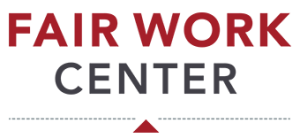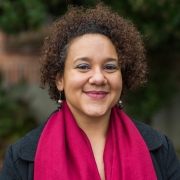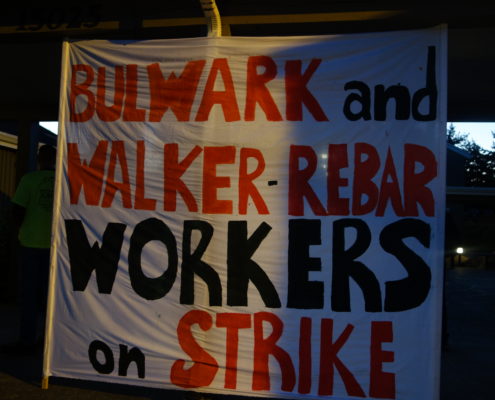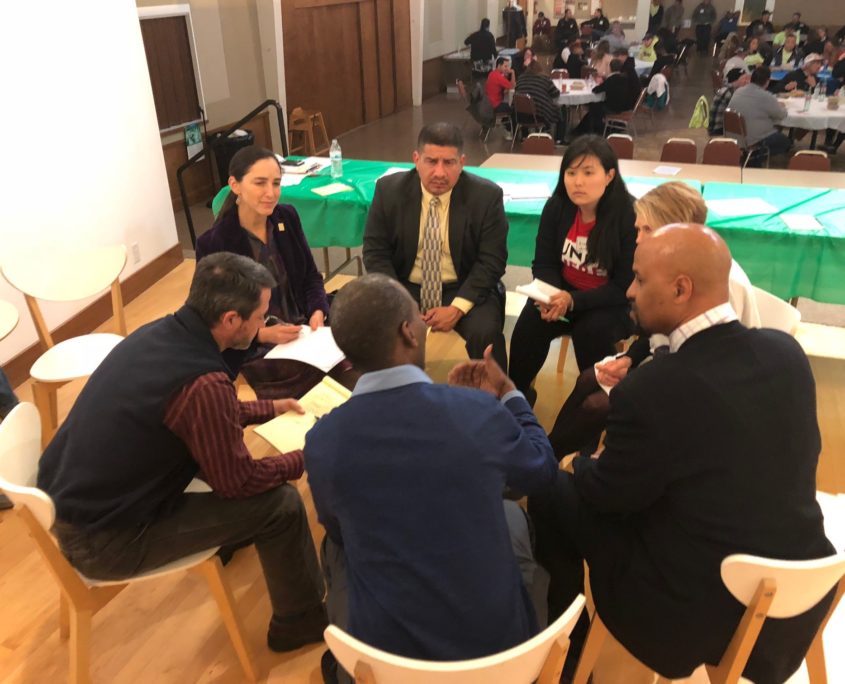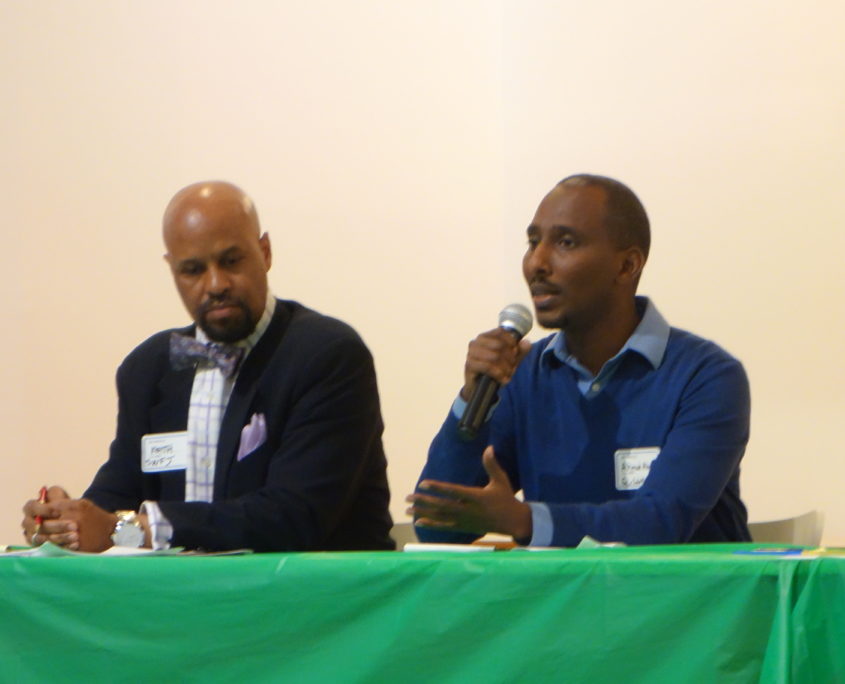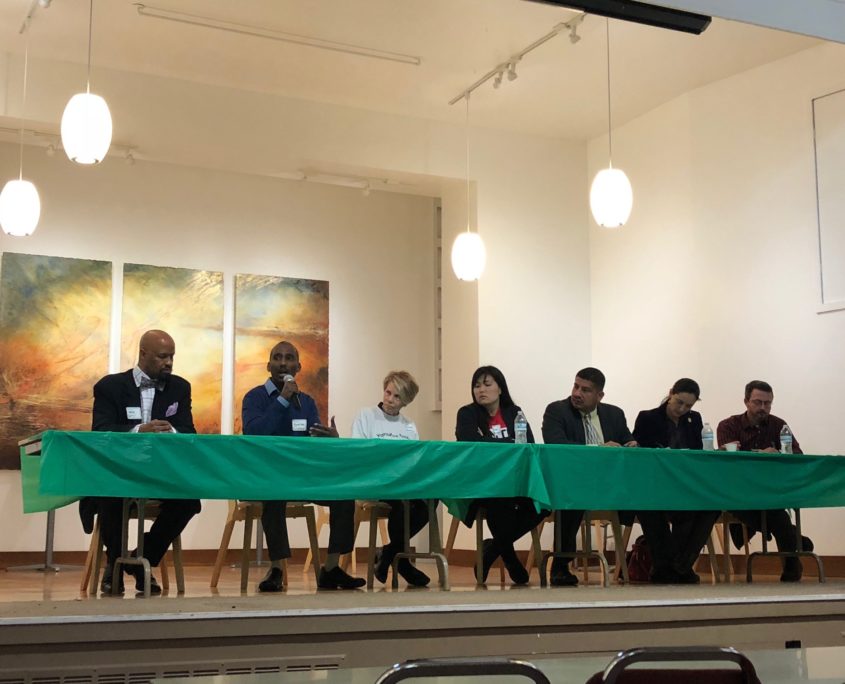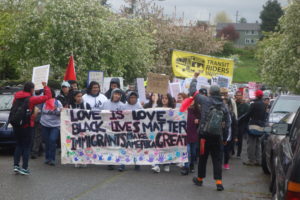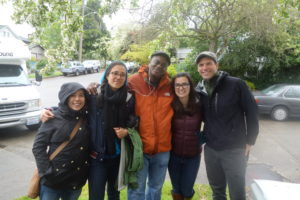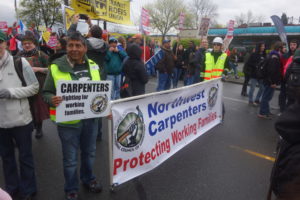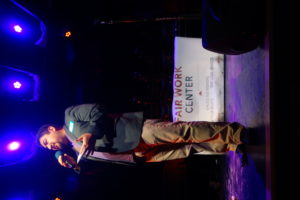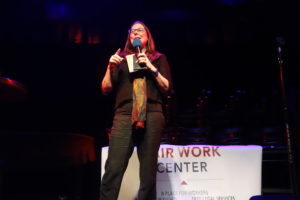Here is an update on two cases we reported in our last newsletter as well as a sampling of two new cases. All worker names are changed to protect their privacy.
Update on Kim’s case: Previously, we shared that Kim was paid just $1,000 per month as an assistant to a hairdresser, despite working 45 hours each week (less than $5.50 per hour). Her employer thought that she could take advantage of Kim’s immigration status as well as her desire to break into the personal care industry. The Fair Work Legal Clinic represented Kim and filed charges on her behalf with Washington’s Department of Labor and Industries (L&I).
Though L&I initially assessed $2,000 in back pay, which was as much as Kim expected, Danielle Kim, a third-year law student at Seattle University, didn’t stop there. She looked closely at the salon’s appointment log, parsing each appointment and determining how many hours Kim worked. Danielle proved that Kim was owed another $2,000 for her overtime and work off the clock. L&I agreed, ordering the employer to pay the full $4,000. Kim is thrilled with the result, but we at Fair Work Center believe L&I should go further in future cases.
Currently, L&I does not require that employers include interest when paying back wages stolen from their workers’ paychecks. No matter how long ago the wage theft occurred or how long the investigation takes, L&I will allow the employer to satisfy its obligation paying only the wages that were due originally. Essentially, this means that employers can take a no-interest loan from their employees’ paychecks. Meanwhile, low-wage workers – who are disproportionately women, people of color, immigrants and refugees – suffer the consequences. Fair Work Center will continue to advocate on behalf of all workers to recover interest in all wage theft cases.
Update on José’s case: In our last newsletter, we also told you about José, who worked as a painter for a large construction firm that misclassified him as an independent contractor. He came to Fair Work Center with some $2,000 in court fees after his initial lawyer abandoned his case.
After we initially took the case, the employer approached us with a settlement offer of $750. But after four months of careful case development and hard negotiation on José’s behalf by the Legal Clinic – including outstanding work by Troy Thornton another third-year law student at Seattle University – José just accepted a settlement of $10,000.
The Fair Work Legal Clinic took Jose’s case when no other attorney in Seattle would. Not because those lawyers didn’t care about José or believe in his case, but because our justice system is not set up to serve the needs of low-wage workers. For complex cases like José’s, with relatively modest amounts of money at stake, it is incredibly difficult for low-wage workers to get justice on the job.
Here are a few more newer cases currently underway.
Gova worked as a seasonal employee at a large department store in downtown Seattle. During her two months there, she suffered routine harassment from her manager, Susy. Susy said things like: “You don’t belong here,” and “I don’t understand your English,” and “Why don’t you go back?” Gova is from Mongolia.
But Gova couldn’t afford to lose her job. While she was regularly harassed by her manager, she was also forced to work through many of her rest and meal breaks to ensure the retail floor was sufficiently staffed during the busiest time of the year. Not that Gova complained, she was a hard worker, but Human Resources noticed she wasn’t clocking out for meal breaks and insisted she do so.
One evening, about halfway into her 8-hour shift, Gova asked for her meal break. Susy denied her break and told Gova to ask again in an hour, which she did. She was denied again. Recalling her conversations with Human Resources, Gova said that she had to take her break. The situation escalated when to the point where Gova was told to go home early from her shift. A few days later Gova learned she was fired. Gova requested an investigation and access to her employee file. Both requests were denied.
The Legal Clinic has helped Gova gain access to her file and a written statement of the reasons for her discharge. We are assisting Gova to file wage and hour complaints with the Seattle Office of Labor Standards to get Gova paid for her breaks, and we are working with Gova to explore her options for other actions against her employer.
Amar is both a long- and short-haul truck driver. He worked for a single dispatching company and was told that, as an “independent contractor,” he would be paid for each successful delivery in an amount decided at the time of dispatch. Needless to say, the dispatcher never told him the amount he would earn at the time of dispatch.
For the first six months, though, they paid Amar somewhere between $750 and $3,000 depending the length of the trip. In March, he was dispatched to a make a delivery in Ohio and headed out on this 10-day round-trip journey. Upon his return, the company told him that they could not pay him right then but would pay later. After several more unpaid jobs, he demanded payment and said that he intended to leave the company. The owner threatened his commercial drivers license – a not-so-veiled threat based on his perceived immigration status.
The Legal Clinic is working to get Amar paid the correct amount for every trip her made.
Finally, in a new and still developing case: Lucas is a cook at a local restaurant chain where is has not been paid overtime or provided rest or meal breaks. Other workers at the restaurant are in the same situation, though they are too frightened to come forward. The Legal Clinic has accepted his case and is hopeful to remedy Lucas’s situation as well as encourage his co-workers to come forward.
FAIR WORK NEWS CONTENTS:
